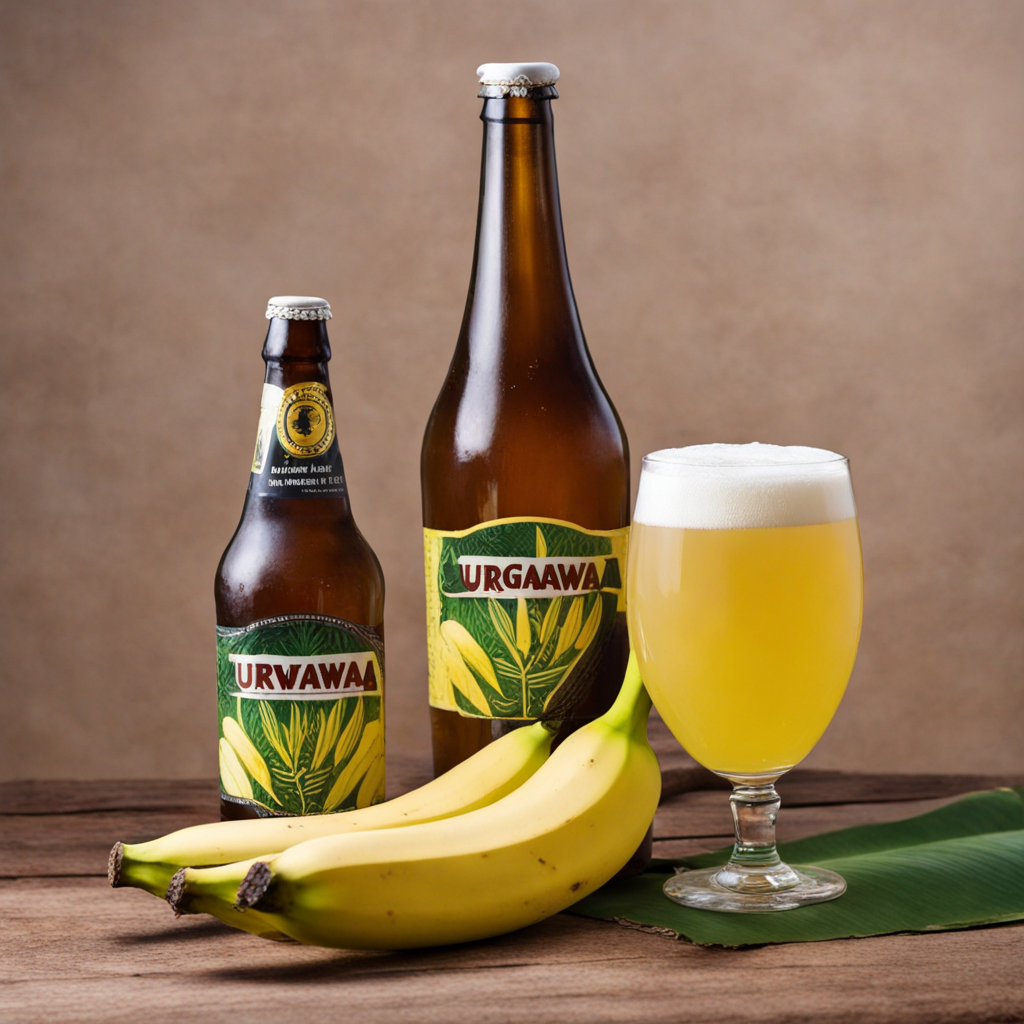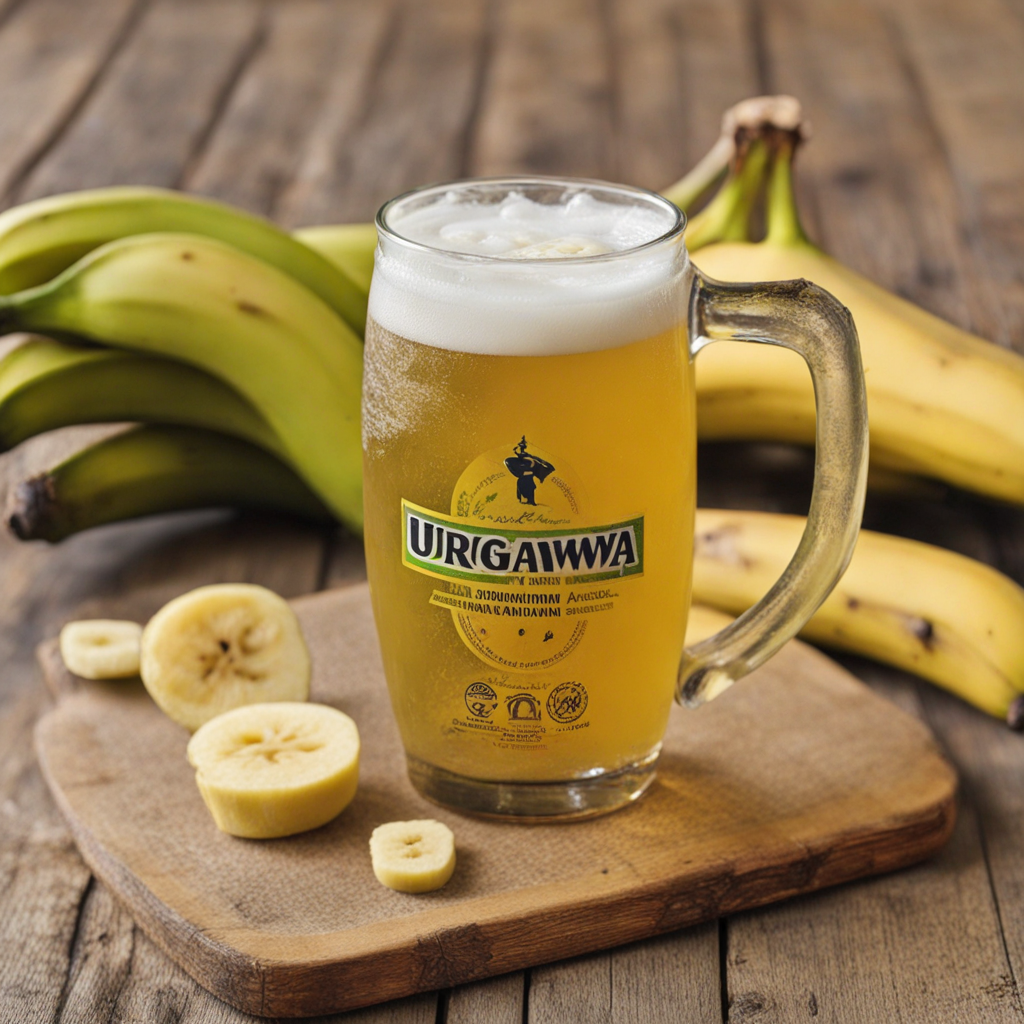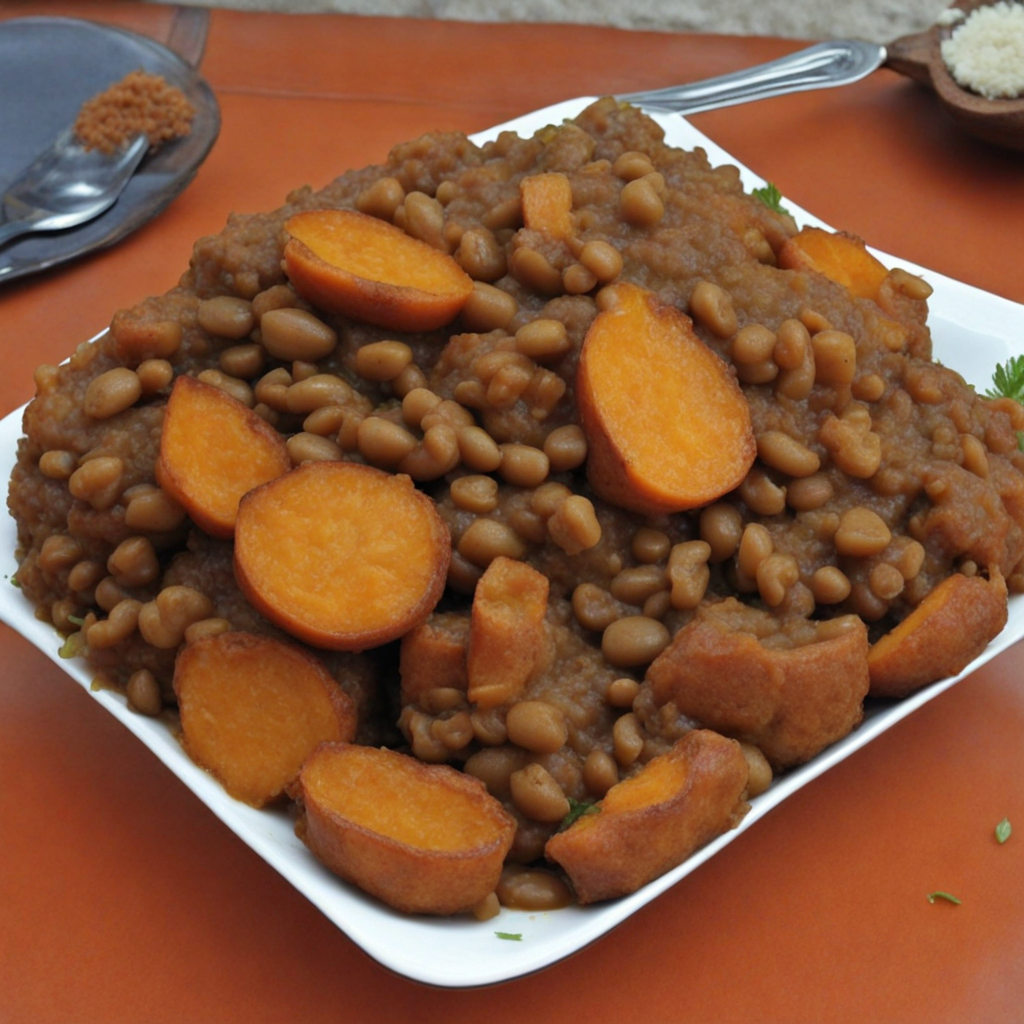Urwagwa
Urwagwa is a traditional Rwandan beverage that captures the essence of the country's rich agricultural heritage. Made primarily from fermented bananas, this unique drink showcases the natural sweetness and flavor of the fruit, which is a staple in Rwandan cuisine. The process of making Urwagwa involves mashing ripe bananas and fermenting them with water, allowing the natural yeasts to work their magic. This fermentation not only enhances the flavors but also gives Urwagwa a slightly effervescent quality, making it refreshing and invigorating, especially when served chilled. The taste of Urwagwa is a delightful balance of sweet and tangy, with the distinct flavor of bananas taking center stage. As you take your first sip, you'll notice the smooth texture and the fruity aroma that envelops your senses. The aftertaste is mildly tart, which adds complexity to the drink and makes it an enjoyable accompaniment to rich Rwandan dishes. Many locals enjoy it during celebrations, communal gatherings, or simply as a casual refreshment, and it often sparks conversations about the cultural significance of the beverage. In addition to its unique flavor profile, Urwagwa is also a symbol of Rwandan hospitality. It is often served in traditional calabashes and shared among friends and family, reflecting the communal spirit of Rwandan culture. Whether you're sipping it in a bustling market or at a family gathering, Urwagwa invites you to experience the warmth and richness of Rwandan life. For anyone eager to explore new tastes, this authentic banana beer offers a delicious and memorable journey into the heart of Rwanda's culinary traditions.
How It Became This Dish
Urwagwa: A Brewed Legacy of Rwanda Urwagwa, a traditional Rwandan beverage, holds a special place in the hearts and homes of the Rwandan people. This banana beer, a product of the fermentation of fully ripe plantains, is not merely a drink; it embodies the essence of Rwandan culture, history, and community. To fully appreciate Urwagwa, one must explore its origins, cultural significance, and its evolution over time. Origins of Urwagwa The roots of Urwagwa can be traced back to the ancient agricultural practices of the Rwandan people. The region's climate is particularly conducive to the growth of bananas, which have been cultivated in Central Africa for thousands of years. Archaeological evidence suggests that bananas were domesticated in Southeast Asia and gradually made their way to Africa, where they adapted to local climates and became a staple food source. In Rwanda, bananas are not just a source of sustenance; they are woven into the very fabric of life. Urwagwa is traditionally made from the East African Highland Banana, a variety known for its sweetness and flavor. The brewing process requires ripe bananas, which are mashed and mixed with water, then left to ferment. This fermentation process is crucial, as it determines the flavor profile and alcohol content of the final product, typically ranging from 2% to 6% alcohol by volume. Cultural Significance Urwagwa is much more than a beverage; it is a symbol of hospitality, community, and celebration. In Rwandan culture, sharing Urwagwa is a communal act that fosters relationships and strengthens social bonds. It is often served at significant life events, including weddings, births, and funerals. The act of brewing and sharing Urwagwa is a ritual that brings families and friends together, symbolizing unity and support during both joyous and challenging times. In traditional Rwandan society, the brewing of Urwagwa is primarily the responsibility of women. This task is seen as a vital aspect of their role within the family and community. The skills passed down through generations emphasize the importance of knowledge, tradition, and respect for the ingredients. The preparation of Urwagwa is often accompanied by songs and dances, reflecting the joy and communal spirit that the beverage represents. Urwagwa also plays a role in religious and spiritual practices. It is often offered during rituals and ceremonies to honor ancestors and seek blessings. The beverage is seen as a gift from the earth, embodying the spirit of the Rwandan landscape and the connection of the people to their land. This spiritual aspect adds another layer of significance, as Urwagwa is not just a drink but a conduit for honoring the past and celebrating life. Development Over Time As Rwanda navigated the 20th century, the social and political landscape shifted dramatically. The introduction of colonial influences brought about changes in lifestyle and consumption patterns. During the colonial era, beer brewed from barley and wheat gained popularity, leading to a decline in the traditional brewing of Urwagwa in some areas. However, as the country moved towards independence, there was a resurgence of interest in traditional practices, including the brewing of Urwagwa. The 1994 genocide against the Tutsi had a profound impact on Rwandan society, disrupting social structures and leading to significant loss. In the aftermath, there was a concerted effort to rebuild the nation, and this included a revival of cultural practices. Urwagwa became a symbol of resilience and hope, as communities came together to restore traditions that had been nearly lost. The beverage was no longer just a drink but a means of fostering unity and healing among the people. In recent years, Urwagwa has also gained recognition beyond Rwanda's borders. The global interest in traditional and craft beverages has sparked a renewed appreciation for this unique drink. Initiatives to promote Urwagwa have emerged, with local producers experimenting with different recipes and methods to cater to modern tastes while still honoring traditional practices. This has led to the development of commercially available Urwagwa, often bottled and marketed for broader consumption. The rise of agritourism in Rwanda has also contributed to the popularity of Urwagwa. Tourists are increasingly drawn to the country’s rich cultural heritage, and visiting local breweries has become a sought-after experience. This not only boosts the local economy but also serves as an opportunity for cultural exchange, allowing visitors to engage with Rwandan traditions and the stories behind Urwagwa. Conclusion Urwagwa is more than just a fermented beverage; it is a living testament to the resilience and spirit of the Rwandan people. From its ancient origins to its role in contemporary society, Urwagwa reflects the complexities of Rwandan identity, culture, and community. As Rwanda continues to evolve, so too does Urwagwa, embracing both tradition and modernity. It serves as a reminder of the importance of heritage and the power of food and drink to bring people together, heal wounds, and celebrate life. Whether enjoyed at a communal gathering or shared among friends, Urwagwa will always be a cherished symbol of Rwanda's rich cultural tapestry.
You may like
Discover local flavors from Rwanda







